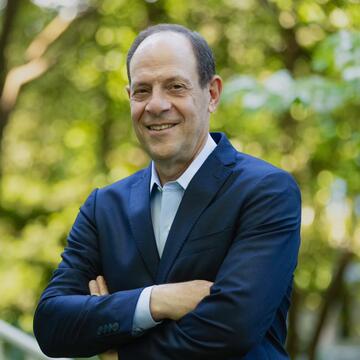The most damaging spy in FBI history
How Robert Hanssen evaded detection for more than two decades
I was seated in a windowless office facing a middle- aged man wearing an orange prison jumpsuit. He stared back at me, sizing me up with a hollow look. I did not even know the location of the nondescript office. Deputy US marshals had picked up my team of Justice IG investigators and me from a street corner in Washington. The windows of the marshals’ van were covered so we could not see where we were going. After riding around for a long time, we were let out at a loading dock inside an unknown building. The marshals ushered us down a hall with nothing on the walls. They sat us in a small office with only a table and a few chairs.
The marshals then brought in the haggard man in the orange jumpsuit and took off his handcuffs. I found myself opposite Robert Hanssen, the most damaging spy in FBI history. He was serving a life sentence without the possibility of parole, having pled guilty to committing espionage from within the FBI for decades. As one of the conditions of his plea, he was required to cooperate with federal investigators, which included my office.
Hanssen had delivered to the intelligence service of the Soviet Union, the KGB, some of our nation’s most important intelligence secrets, such as US strategies in the event of a nuclear war, developments in US military weapon technologies, and the identities of Soviets who were spying for the United States. As a result of his disclosures, the Soviets executed at least three of these spies who had worked for the FBI or the CIA.
Hanssen had delivered to the intelligence service of the Soviet Union, the KGB, some of our nation’s most important intelligence secrets, such as US strategies in the event of a nuclear war, developments in US military weapon technologies, and the identities of Soviets who were spying for the United States. As a result of his disclosures, the Soviets executed at least three of these spies who had worked for the FBI or the CIA.
After Hanssen’s arrest in February 2001, FBI Director Louis Freeh established a commission, headed by former FBI director William Webster, to examine the FBI’s internal security program. However, in March 2001 Congress and the attorney general asked me, as the independent inspector general, to conduct an in- depth review to determine why and how Hanssen had committed espionage, why the FBI had failed to detect his espionage for more than twenty years, and whether additional changes in FBI security procedures were necessary.
[…]
Our team examined more than 360,000 pages of documents from the FBI, the CIA, and other US intelligence agencies, some of which were classified at the highest security levels. We interviewed more than two hundred people, including Hanssen’s former colleagues and supervisors at the FBI, as well as members of his family, friends, and acquaintances who had known Hanssen throughout his life. We also interviewed Hanssen to try to understand his motivations and actions.
That was how I found myself sitting across from him, questioning him in that barren office. Hanssen was a strange and twisted person. In our interview, he tried to minimize the enormous damage—in terms of lives lost and compromise of our national security—that he had caused. While he seemed to have a good recall of facts and events, his affect was flat and emotionless. He sometimes stared at us or at the wall before answering a question. He never acknowledged the enormous damage he had caused as a traitor.
In our interview, he tried to minimize the enormous damage—in terms of lives lost and compromise of our national security—that he had caused. While he seemed to have a good recall of facts and events, his affect was flat and emotionless. He sometimes stared at us or at the wall before answering a question. He never acknowledged the enormous damage he had caused as a traitor.
Our team determined through this and other interviews, and through an exhaustive and detailed investigation, that he was not a clever and crafty spy, as the FBI had initially suggested when he was caught and still seems to imply today. In 2024 the FBI’s website still had a history page contending that “Because of his experience and training as a counterintelligence agent, Hanssen went undetected for years, although some of his unusual activities had aroused suspicion from time to time.”
In fact, our investigation found that he was a mediocre agent who had behaved recklessly and oddly throughout his career at the FBI, raising numerous red flags that should have led the FBI to detect his treason sooner. He went undetected not because of his experience and training as a counterintelligence agent but because of repeated failures of FBI internal oversight and inadequate FBI internal security practices, which relied mainly on trusting that FBI agents would not commit treason.
He went undetected not because of his experience and training as a counterintelligence agent but because of repeated failures of FBI internal oversight and inadequate FBI internal security practices, which relied mainly on trusting that FBI agents would not commit treason.
But trust is not an effective internal security strategy.
Excerpted from Watchdogs published by University of Virginia Press ©2024
